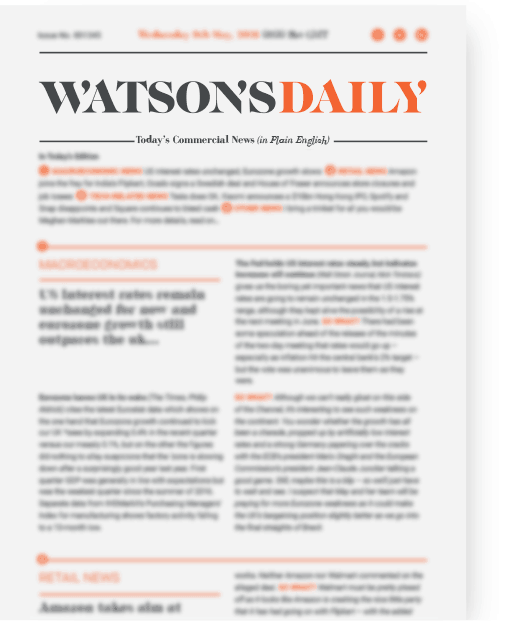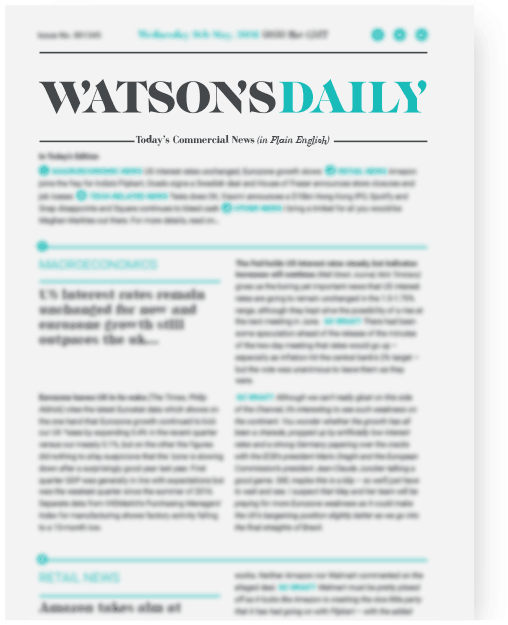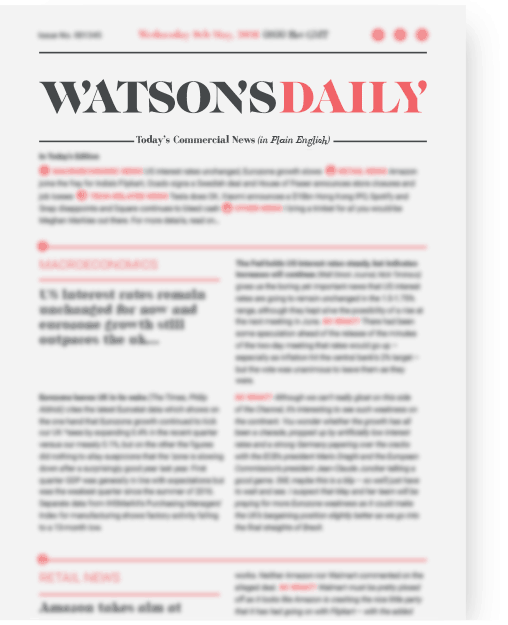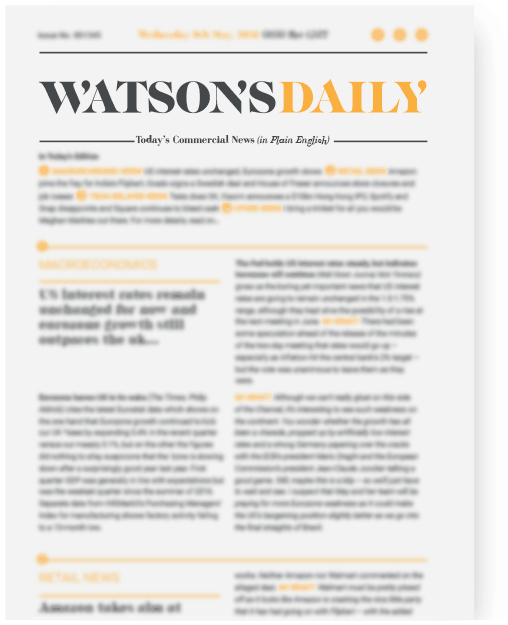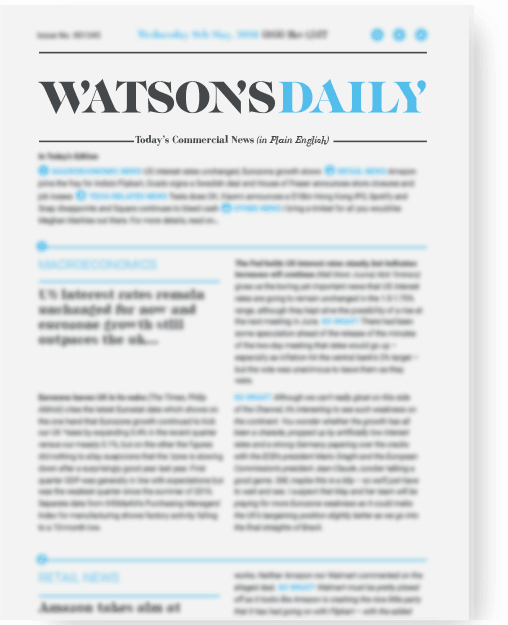- In MACROECONOMIC NEWS, China growth slows down and the Italian budget hits a wall
- In UK-RELATED NEWS, retail sales relent and New Look leaves China
- In INDIVIDUAL COMPANY NEWS, Uber moves into the temp market, Unilever backpeddles and another European airline hits turbulence
- In OTHER NEWS, I leave you with something AMAZING. For more details, read on…
1
MACROECONOMIC NEWS
So China growth slows and the Italian budget gets some stick…
Cue mass hysteria following China growth slows to 6.5%; Finance officials scramble to soothe investors (Wall Street Journal, Lingling Wei) as official statistics showed China’s weakest growth rate since the first quarter of 2009. Industrial output and consumption slowed down in the third quarter although exports have so far managed to weather the US-China trade war storm. Chiefs at the People’s Bank of China and the banking and insurance regulator issued statements before the data was released calling for calm. The Shanghai Composite Index has been the worst performer among global benchmarks, having fallen 25% so far this year and fell 1.1% on the news initially, but recovered in late morning trading. Some of the weakness is due to Beijing’s continued efforts to curb debt growth and risk appetite which has led to a drop-off in infrastructure spending, amongst other things. * SO WHAT? * No doubt everyone will be tearing their hair out at this news, but the fact is that China is still on track to make its full-year growth target of 6.5%. If there is further sluggishness, Chinese officials and government advisers say that they will implement further growth measures such as giving banks more funds to make loans, increasing spending on infrastructure and lowering corporate tax rates. Although such data can sap belief in China’s growth
prospects, it seems to me that the government has a plan B and is ready to implement it, so I am not overly concerned. I guess it could blunt China’s power at the negotiating table with the US as the latter is firing on all cylinders at the moment, but only a bit.
Funnily enough, Rome rebuked by Brussels for breaking EU budget rules (Financial Times, Mehreen Khan, Jim Brunsden and Miles Johnson) has not gone down well in Italy as the EU issued a formal rebuke for breaking EU deficit rules in the populist government’s first budget. If this carries on, the European Commission will have to take the unprecedented action of rejecting a eurozone member’s spending plans. If Italy’s governing coalition does not come up with a revised plan by next week, Brussels will make a formal demand for one by the end of this month and if that doesn’t shock them into doing anything, the EU can fine them up to 0.5% of GDP. Italy’s PM Giuseppe Conte is arguing that he wants to use his budget to implement structural reforms to kick-start the economy, but other EU members believe that giving Italy a “free pass” puts the implementation of wider reforms of the bloc at risk. * SO WHAT? * Conte and his chums must have known this was coming as it has been well-flagged. When you reveal a target budget deficit triple the amount of the EU-mandated target, you are bound to ruffle feathers. Italy’s debt pile is second only to Greece in the Eurozone, where it is also the third biggest economy. Bailing out Greece is one thing, but doing the same for Italy will be on another level and could potentially have far worse consequences.
2
UK RETAIL-RELATED NEWS
Retail sales take a breather and New Look abandons China…
Hopes for an economic boost falter as food spending dips by 1.5pc (Daily Telegraph, Tim Wallace) cites the latest figures from the Office for National Statistics which showed that families cut back on food spending last month after a bumper summer. Having said that, it wasn’t all bad as clothes sales volumes rose by 1.2pc and household goods volumes were up by 2.2% with the overall trend still positive. Ruth Gregory at Capital Economics observed that “Although September’s retail sales figures were weaker than expected, sales still rose strongly over the third quarter as a whole…and with sustained rises in
real pay now in prospect, this should pave the way for a gradual recovery in consumer spending growth in the year ahead”.
New Look to pull out of China after poor sales (The Guardian, Sarah Butler) shows that the Chinese dream has ended for New Look as it announced that it’s going to close all of its 120 shops there by the end of the year due to disappointing sales after giving it a go for four years. The closure of its Shanghai head office will bring the curtain down on the overseas expansion ambitions of the previous boss, Anders Kristiansen as the company continues its struggles with its domestic market. * SO WHAT? * New Look went through an insolvency process as recently as March so this latest development is hardly surprising. It has GOT to prioritise what’s going on at home first. As it is, that is going to be difficult enough without all this international distraction.
3
INDIVIDUAL COMPANY NEWS
In individual company news, Uber tries something different, Unilever abandons plans to abandon and another European airline faces difficulty…
Uber takes a detour with plan to provide temporary staff (Financial Times, Tim Bradshaw and Shannon Bond) highlights a new area for Uber as it turns out that it is developing a new short-term staffing business called Uber Works. It is using its existing “on demand” model and is building a big database of contractors that will provide temps for events and corporate functions in a B2B service offering. The project has been in development for a number of months in Chicago after an earlier trial in LA, but there is no sign of an official launch date as yet despite the fact that it is stepping up recruitment. * SO WHAT? * This is an interesting concept that will no doubt have existing operators quaking in their boots. It also adds another string to Uber’s bow and further fuels the argument that Uber isn’t just a one-trick pony – which will come in useful when it comes to flotation next year. I would recommend you read this article in full if you can – there’s a really useful table at the bottom that summarises all of Uber’s business interests.
I thought I’d mention Unilever overhaul may be axed after backlash (The Times, Alex Ralph) because there’s been a ton of to-ing and fro-ing between the company and
investors about simplifying its structure and having one HQ (they currently have one in Amsterdam and one in London) on the one hand and creating uproar and discontent on the other by abandoning the company’s roots. * SO WHAT? * TBH a lot of this is noise and the whole structure thing gets wheeled out from time to time but it got a right kick in the pants after last year’s failed Kraft Heinz hostile takeover approach. However, it looks more likely now that the current dual structure will remain in place. The company still needs to slim down its offering and just get leaner generally – but it’s probably going to have to do that within its existing parameters.
Cobalt Air the latest airline to suspend operations (The Guardian, Julia Kollewe) heralds the demise of an airline that I’ve quite frankly never heard of (it was formed in the wake of the failure of state-run Cyprus Airways in 2015, had six aircraft and 200 staff), but following Flybe’s profits warning, it does make you wonder what’s going to happen with Europe’s smaller airline operators. After Cobalt, will more European airlines go bust (The Guardian, Gwyn Topham) does a decent summary of the story so far and mentions British Airways parent IAG as saying consolidation was on the cards as rising fuel costs and Brexit worries loom large on the immediate and near-term horizon respectively. * SO WHAT? * Consolidation of routes, planes and airports seems to happen from time to time, but at the moment, rising fuel costs are as good a reason as any for airlines to huddle together to avoid getting left out in the cold.
4
OTHER NEWS
And finally, in other news, I propose a toast(ie)…
I must admit I was scrabbling around somewhat this morning, trying to find something to put in this section – and then I stumbled on this beauty: You need to check out this really cool coin that has an amazing hidden feature (Mashable, Xavier Piedra https://tinyurl.com/y78snhpf). This is super-impressive artistry!
Some of today’s market, commodity & currency moves (as at 0735hrs green is up, red is down). THIS IS INTENDED AS A ROUGH GUIDE ONLY!
| FTSE 100 * | Dow Jones * | S&P 500 * | Nasdaq * | DAX * | CAC-40 * | Nikkei ** | Shanghai ** |
| 7,012 (-0.59%) | 25,383 (-1.26%) | 2,769 (-1.42%) | 7,484 | 11,534 (-1.54%) | 5,096 (-0.91%) | 22,521 (-0.55%) | 2,540 (+2.16%) |
| Oil (WTI) p/b | Oil (Brent) p/b | Gold Per t/oz | £/$ | €/$ | $/¥ | £/€ | $/₿ |
| $68.8576 | $79.4932 | 1,225.88 | 1.30230 | 1.14540 | 112.46 | 1.13706 | 6,370.00 |
(markets with an * are at yesterday’s close, ** are at today’s close)





